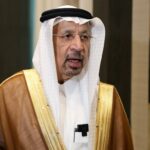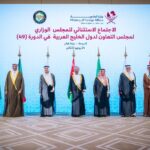Trump hints at lifting AI chip restrictions ahead of trip to Gulf
The UAE, through its state-owned G42 firm and MGX fund, has placed AI development at the center of its national ambitions to be a global tech leader

White House/X
Sheikh Tahnoon bin Zayed, the UAE National Security Adviser, met U.S. President Donald Trump and Vice President JD Vance at the White House in March
Indications that President Donald Trump will modify or even scrap U.S. sanctions on the sale of advanced AI semiconductor chips are building anticipation for his trip to the Gulf next week.
A statement from the Commerce Department in Washington on Wednesday criticized...










